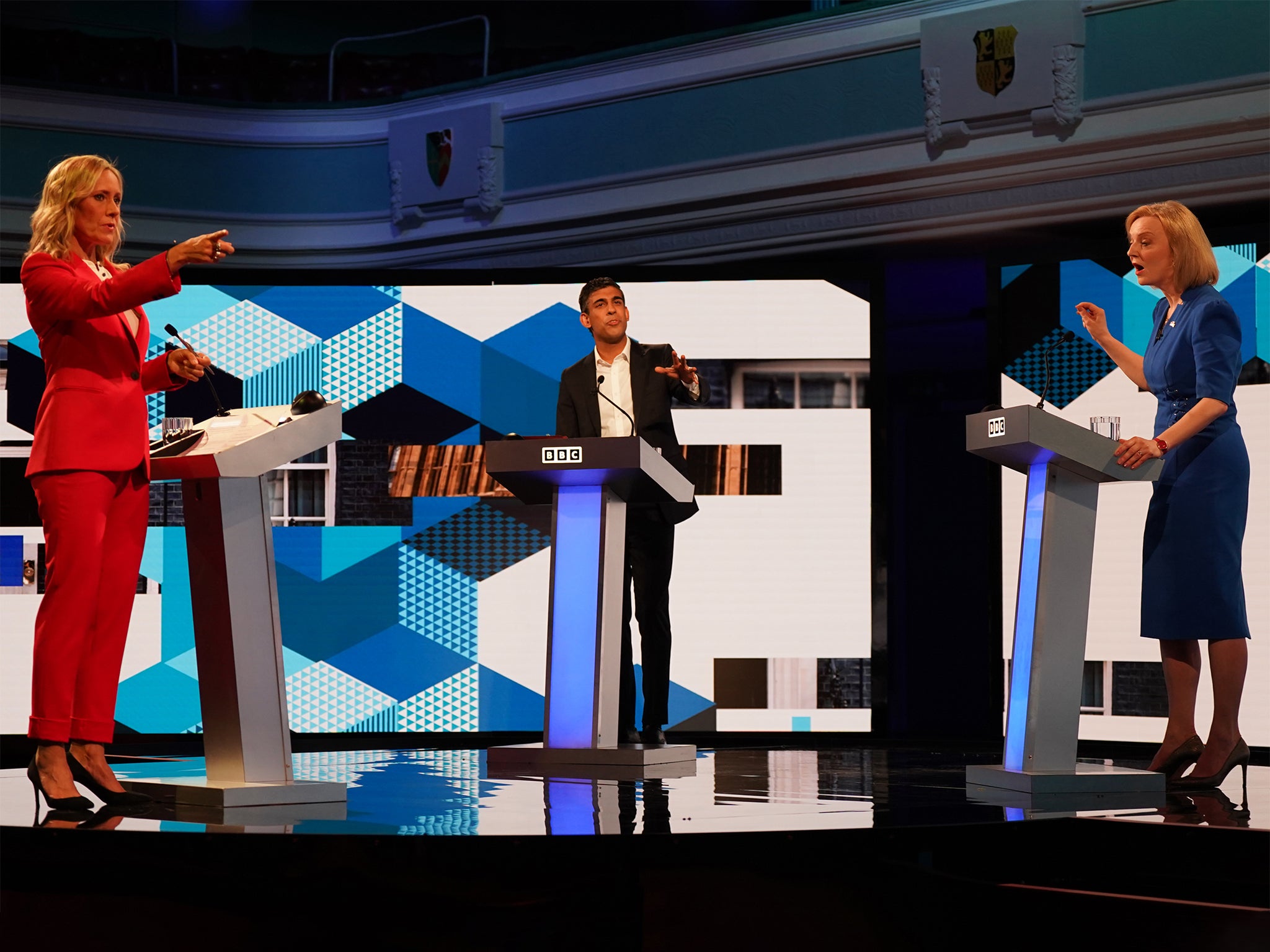The Conservatives must realise how much people feel excluded from their ‘democracy’
Editorial: The next prime minister needs to recognise the limits of their mandate

The British people understand the principles of parliamentary democracy. They know that we do not have a presidential system, and that the authority of the prime minister stems from a majority in the House of Commons. They know that whoever is chosen as Conservative Party leader will command a majority in parliament and so the government will carry on, constitutionally and democratically.
However, a majority of the people – 56 per cent, in our Savanta opinion poll – say that there should be a general election immediately after the new prime minister is chosen. There are good reasons for this. One is that it is better for a new leader to have their own mandate. It is not constitutionally necessary, but it is better for the country, and for the leader, that there should be the clarity and authority that comes from having led their party in a successful general election.
Gordon Brown and Theresa May both felt this keenly, although neither ducking nor holding an election, respectively, worked out well for them. Whoever succeeds Boris Johnson will no doubt feel it too, while being wary of their predecessors’ experiences. The issue of a mandate is particularly relevant in the case of Liz Truss, who is standing for the leadership on a platform of sweeping change, but also one of returning to part of the mandate of the 2019 election manifesto, namely the promise not to raise taxes. The best way to resolve that tension would be for Ms Truss to lead her party into a general election on a manifesto that she has written herself.
There is another reason Ms Truss’s victory would strengthen the case for a general election. It would be the first time that party members had chosen a different prime minister from the one that the party’s MPs would have selected. Party members have in the past chosen leaders that MPs would not have chosen, but only in opposition. In 2001, Conservative members chose Iain Duncan Smith when the MPs would probably have elected Kenneth Clarke. And in 2015, Labour members chose Jeremy Corbyn when the MPs would probably have ended up with Andy Burnham.
But in the only case when party members have made the choice while their party has been in government, in 2019, they elected Boris Johnson, who would have been the MPs’ choice too.
This time, if Ms Truss prevails, it will be in the knowledge that Rishi Sunak would probably have been prime minister if the decision had been in the hands of MPs alone. As John Rentoul writes, the extension of the leadership franchise beyond MPs has not resulted in “more democratic” choices. All it has achieved is to put a premium on ideological poses, and a discount on ministerial competence.
To keep up to speed with all the latest opinions and comment, sign up to our free weekly Voices Dispatches newsletter by clicking here
But whoever emerges as the winner on 5 September, the case for an early general election is strong. The broad mass of the people have been watching this leadership contest as outsiders, their noses pressed to the glass. As Ashley Cowburn writes, they are mere observers of a competition to choose their prime minister that will be decided by a highly unrepresentative 0.34 per cent of the population. This is not a good or democratic system, and it contradicts the principles of parliamentary democracy, under which MPs should decide who most commands their confidence.
That is why the best democratic alternative would be an immediate general election. However, it is unlikely to happen, not least because the state of the economy would make it a perilous enterprise for the new prime minister. But she or he would be well advised to bear in mind the democratic deficit that attends their office – and to govern accordingly. That means that, if they will not hold an early election, they must reject the dogma of the Conservative members who have just elected them, and govern by consensus, for many, not the 0.34 per cent.



Join our commenting forum
Join thought-provoking conversations, follow other Independent readers and see their replies
Comments